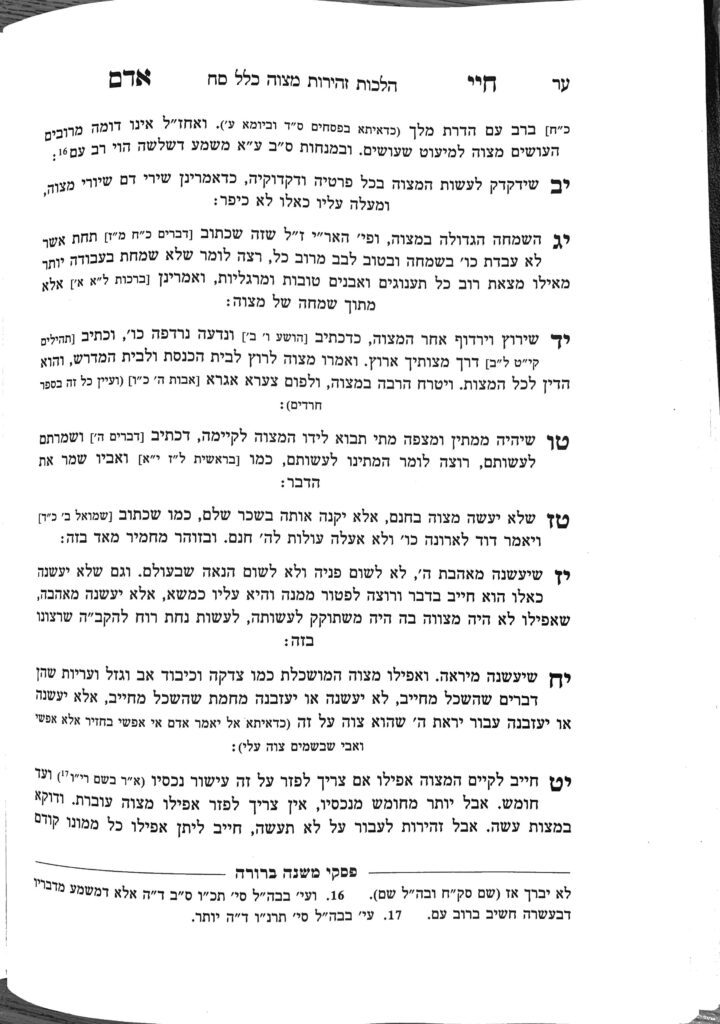We are continuing in siman 19, discussing the halachos of spending money on mitzvos.
We have mentioned that one spends more than one fifth on pidyon haben (shiur 1444) and pirsumei nisa (1438). The Maharam Shik explains that when one has responsibility to another, such as giving money to the kohen, it generates a chiyuv to spend more than a fifth due to the achrayus one has towards the other. He therefore suggests that pirsumei nisa is a similar idea, in that we have a responsibility towards Hashem to clarify His presence in this world. This achrayus requires us to spend even more than one fifth to fulfill it.
The Biur Halacha suggests that a person is chayav to spend more than one fifth for a mitzvah overes, a limited-time mitzvah opportunity. The Biur Halacha suggests this idea as the reason the Gemara says that Rabban Gamliel spent a large amount of money on an esrog.
We learned (shiur 1442) that it is not clear from the Bavli that the one fifth limitation applies to mitzvos. The Bavli writes the limitation regarding tzedakah, and the poskim extrapolate it to other mitzvos. Therefore the Biur Halacha suggests that the extrapolation never included a mitzvah overes.
Regarding tzedakah, when there is a pikuach nefesh situation, there is no one fifth limitation.
Regarding tircha. It is clear throughout Shas that Chazal do not bend to a person just because there is tircha involved in a mitzvah. It takes much tircha to make parnassah, but no one second guesses the need to work hard for parnassah. Therefore, tircha itself is not a reason to exempt a person from a mitzvah. The considerations we learned (shiur 1442) regarded the concern that one’s financial stability would be impacted in the future, and even then, we learned (shiur 1444) that the Biur Halacha pointed out that if one’s financial stability will not be impacted, the one fifth limitation does not apply. But we should not take these limitations as an understanding that Chazal limited our responsibility towards mitzvos, because a person is chayav to do whatever it takes to do a mitzvah.
We learned (1440-1441) that the Nishmas Adam discusses a possible limitation regarding traveling. However, he was discussing a situation in which a person would be completely uprooting themselves, and even that limitation is not clear amongst the poskim. If a person will travel all over for parnassah or leisure, it is hard to understand why they would be relieved from travel for mitzvos.
Summary
- Pidyon Haben and pirsumei nisa are exempt from the one fifth limitation.
- A mitzvah overes may be exempt from the one fifth limitation.
- Pikuach nefesh is certainly exempt from the one fifth limitation.
- Tircha alone is not a reason to be exempt from a mitzvah, but may combine with other factors to create an exemption.



